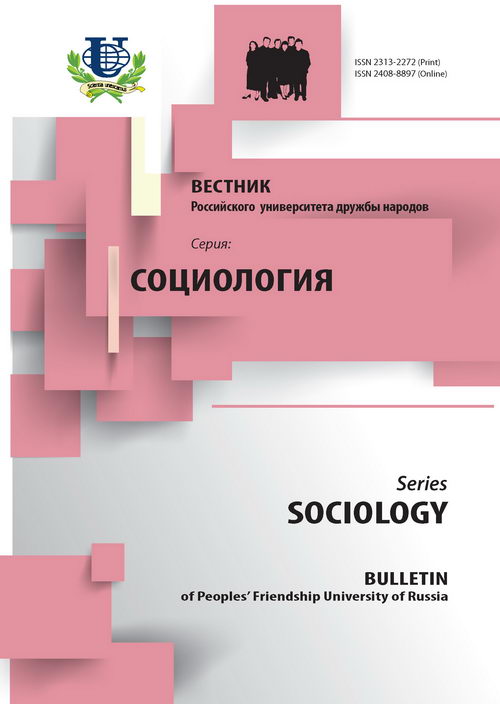Welfare state: Milestones of development and the current status
- Authors: Zakharyan DA1
-
Affiliations:
- Peoples’ Friendship University of Russia
- Issue: Vol 16, No 3 (2016)
- Pages: 649-658
- Section: Sociological lectures
- URL: https://journals.rudn.ru/sociology/article/view/14009
Cite item
Full Text
Abstract
The article describes the evolution of ideas about the social state as a fair state based on the concept of the social contract. L. von Stein argues that the purpose of the welfare state was not changing the class structure of society and the elimination of the contradictions between the classes, but rather balancing and minimizing conflicts with the help of property transformations allowing a person to change one’s class affiliation. The main condition for the existence of the welfare state is its policies compliance with the interests of citizens, which provides political stability and social security. The central idea of the welfare constitutional state is that the rights of citizens are guaranteed by the state. The functions of the state and its social responsibilities were transforming over time mainly due to the erosion of state, private and corporate responsibility for providing social services. In most cases, the social programs are developed by the state, but they can also be provided by commercial organizations in the “consumer society”, in which all things and services have a material value and benefit. The welfare state is based on the principle of social justice in the distribution of wealth among the population, thus, every democratic state seeks to become a welfare state, which implies a high level of confidence in the government.
About the authors
D A Zakharyan
Peoples’ Friendship University of Russia
Author for correspondence.
Email: daria.m@bk.ru
Moscow, Russia
References
- VCIOM: “Odobrenie dejatel'nosti gosudarstvennyh institutov” [Public approval of the state institutions activities] // http://shhciom.ru/neshhs/ratings/odobrenie_dejatelnosti_gosudarstvennyh_institutov.
- Kalashnikov S.V. Ocherk teorii social'nogo gosudarstva [Essay on the Welfare Wtate Theory]. M., 2006.
- Kanarsh G.Ju. Social'naja spravedlivost': filosofskie koncepcii i rossijskaja situacija [Social Justice: Philosophical Theories and the Situation in Russia]. M., 2011.
- Kochetkova L.N. Teorija social'nogo gosudarstva Lorenza von Steina []. Filosofija i ob-shhestvo. 2008. Vyp. 3.
- Miletskiy V.P. Social'noe gosudarstvo: jevoljucija idej, sushhnost' i perspektivy stanovlenija v sovremennoj Rossii [Welfare state: The evolution of ideas, the essence and prospects for for-mation in contemporary Russia]. Politicheskie processy v Rossii v sravnitel'nom izmerenii. Pod red. M.A. Vasilika, L.V. Smorgunova. SPb., 1997.
- Puzanova Zh.V., Zahar'jan D.A. Obshhestvennaja palata Rossijskoj Federacii kak instrument vzaimodejstvija obshhestva i vlasti: podhody k ocenke jeffektivnosti dejatel'nosti [Public Chamber of the Russian Federation as a tool of interaction between society and the authori-ties: Approaches to assess its effectiveness] // Vestnik Rossijskogo universiteta druzhby narodov. Serija “Politologija”. 2014. No 2.
- Stein L. von. Uchenie ob upravlenii i pravo upravlenija s sravneniem literatury i zakonodatel'stv Francii, Anglii i Germanii [The Doctrine of Management and the Right to Administer with the Comparison of Literature and Legislation of France, England, and Germany]. SPb., 1874.














